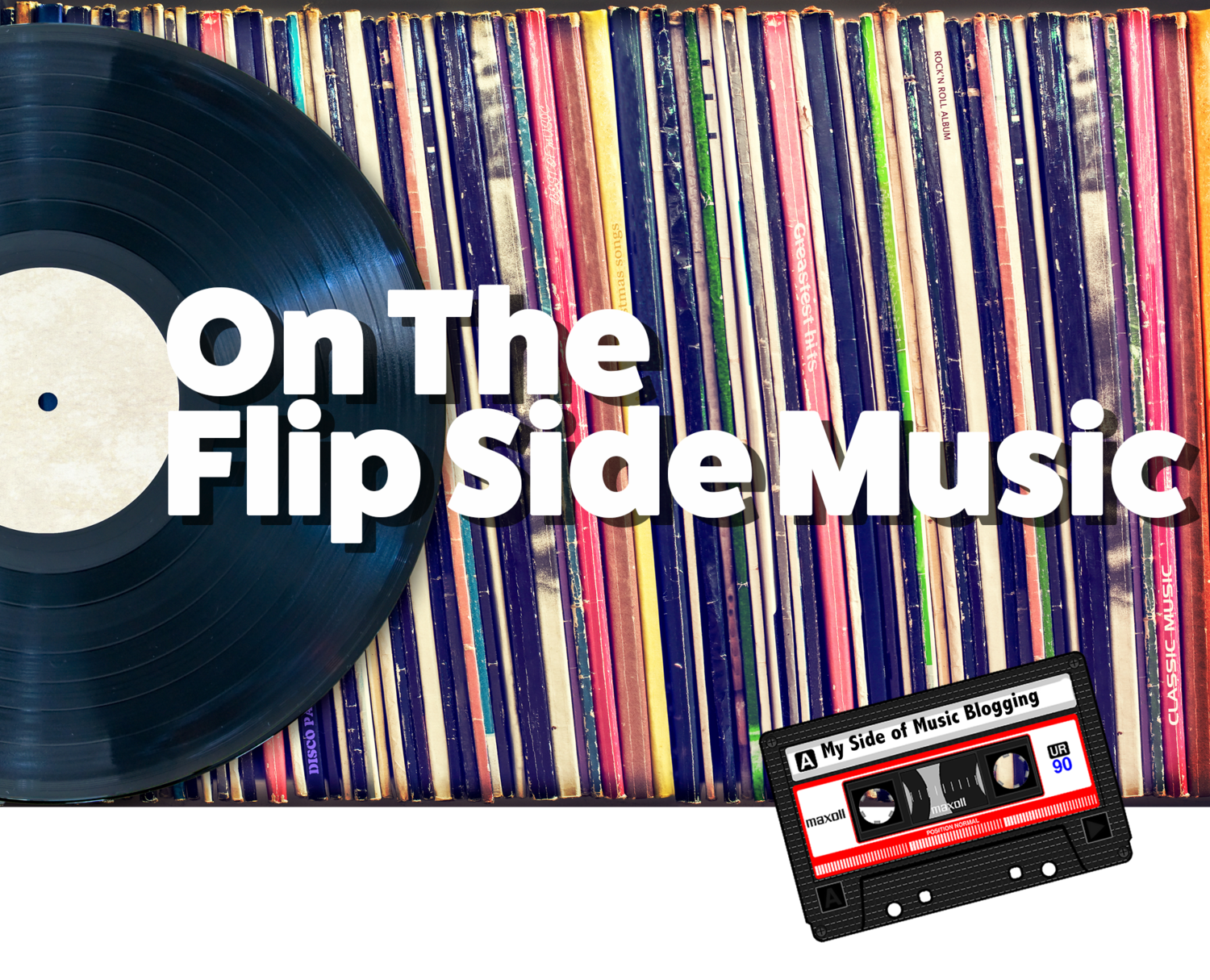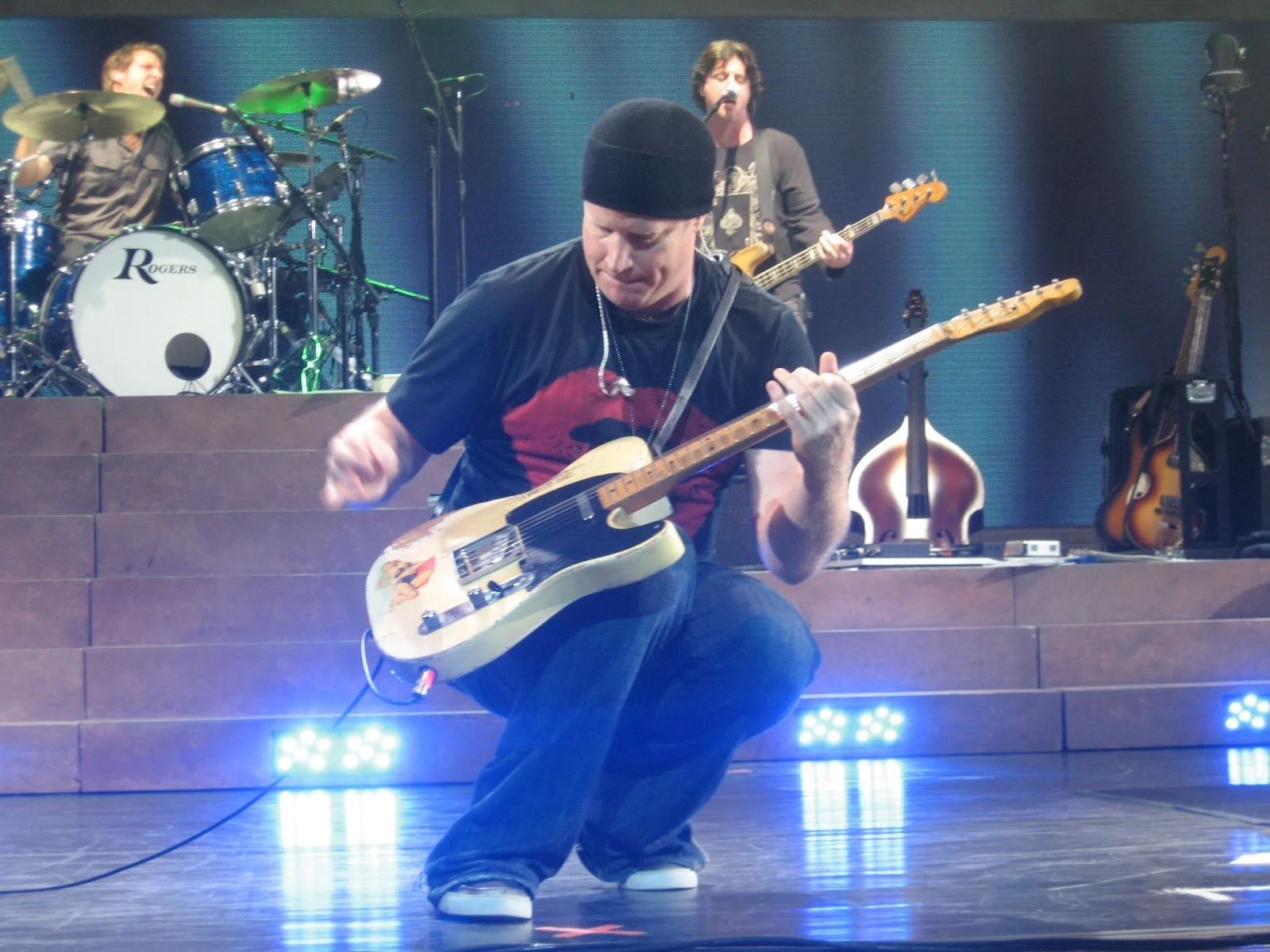INTERVIEW: Catching up with Counting Crows' Adam Duritz
Interview by Jessica Klausing
The questions were provided courtesy of the Counting Crows Merry Murder of Fans Facebook group.
This interview is featured on Los Angeles Digest
In 1993, Counting Crows was put on the map with their successful debut album, August and Everything After. A seven-time platinum award winning band, Counting Crows is still going strong as ever today. Currently, the band is touring throughout North America, Europe, and Australia in support of their seventh album, Somewhere Under Wonderland.
I spoke with lead singer, Adam Duritz on a stop in Southern California over the weekend. We discussed stage preparations, rumored new releases, and if he still lurks on old fansites.
Adam Duritz during soundcheck at Irvine Meadows
photo by Jessica Klausing
What did you think of Ryan Adams' cover of Taylor Swift's 1989 album? Would you consider covering an entire album?
Adam: I haven't had a chance to check it out yet. Yeah, I could see us doing something like that in the future. I love interpreting other people's material. Our tour mates, Hollis Brown, has done something like that. Their second album, Gets Loaded covers Velvet Underground's Loaded. It's a great album!
Are you working on any new material?
Adam: Not really right now. I am preoccupied with the tour. It's hard to make myself write something on the road.
How do you physically and/or mentally prepare for a certain song on stage?
Adam: I try not to think too much about it. I don't have a special way to prepare. I just start singing. All of the songs have different feelings and there are different ways to interpret them. You just get on stage and do it.
How do you expend so much energy--give so much to the crowd and then adjust to the silence afterwards?
Adam: It was something I had to get used to after a while. In the beginning, it was weird for me to try to connect to ten thousand people and then become isolated. I don't mind it so much now. The quiet can be nice. After all it does give your voice and ears a break.
What's your favorite Rock N' Roll antidote on the road?
Adam: I really enjoy playing gigs. It does have a lot of strain on my voice. So, I try not to do a whole lot of talking in between shows. I had a friend that bought me a white board as a joke since I mostly have to text and email to communicate. I do talk when I absolutely have to but I mostly just hang out in a room and be quiet.
Out of all of the songs you have written, which either song or line has the most personal significance to you and why?
Adam: All of them are very personal. I never pick a favorite. The same goes with making the set list each night. We only pick songs that we feel like playing that night. That way we never get tired or sick of certain songs.
Are there any plans to celebrate the 20th anniversary of Recovering the Satellites next year?
Adam: Not really. I just thing those anniversaries are gimmicks to get people to buy things. At one point, Recovering the Satellites was my favorite record. We have talked about releasing a deluxe set of footage from that tour. We do have a lot of film from that time period.
What happened to the unreleased song, "Suffocate?" Will we finally hear a studio version?
Adam: Oh yeah, I remember that song! It was going to be on the album, Recovering the Satellites. The song was never finished. I just don't think it's good enough to be released right now. We have tried playing it and just never really got it.
Will you consider another impromptu project like your All My Bloody Valentines? The fan interaction was unique.
Adam: Yeah, my girlfriend and I had broken up a week before Valentine's Day. I didn't want to sit around and be miserable so I decided to learn a different song for each day of the week. I didn't sleep for about a week trying to learn those songs. All I had were recorded versions on my cellphone. So, it was a bit difficult at times. Afterwards, I tweeted for fans to submit art covers for the album and then had them vote for their favorite on Facebook. I might do something like that again someday.
Who is your guilty pleasure on the radio?
Adam: I don't listen to music on the radio, just online. The Weekend has that song from Fifty Shades of Grey that gets played a lot. That has to be good, right? For favorites I really love Miguel. He has such an incredible ear for melody! I think it's disrespectful to the artist to call them a guilty pleasure though. I remember promoting Justin Timberlake's first album on the Counting Crows website when it first came out. That pissed a lot of our fans off. Music moves people in different ways. If it's something that you enjoy then you shouldn't be ashamed of it!
Do you ever lurk on Counting Crows fan sites (Annabegins.com) and Counting Crows fan groups (Merry Murder of Fans)?
Adam: No, I haven't. I used to back in the day interact on the old AOL forums. I was able to build a community that led to the message boards on our website. There was no social media back then. Now I just communicate on our Twitter and main Facebook page.







